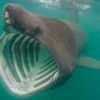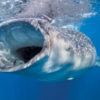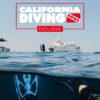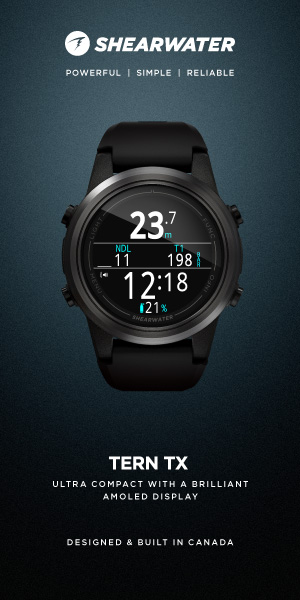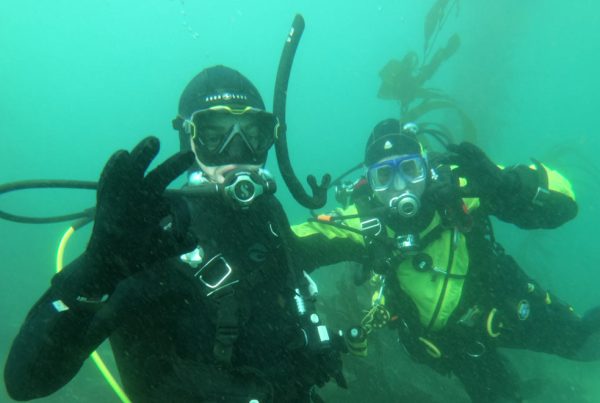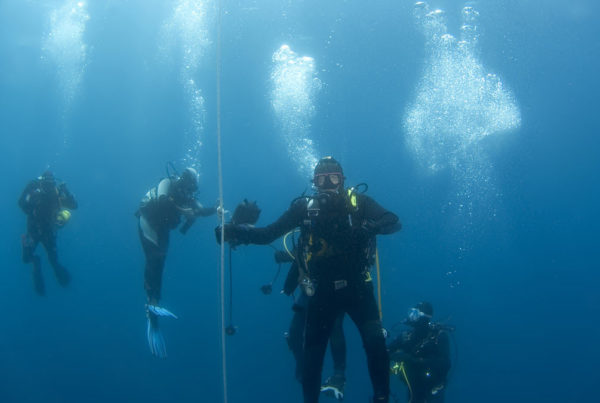What is the single biggest thing that keeps you from diving more often? Money? Lack of skills? No dive buddy? While these may very well be the factors, odds are the largest deterrent to diving more often is a simple lack of time.
Of course, there are things we could do to better organize and streamline our lives to do those things we love, but that has been addressed in countless articles in other general interest magazines. What I want to do here is to help you make your dive time more efficient so that you get more time in the water, which, I assume, is your ultimate goal.
BEACH DIVES
Beach diving is an excellent way to fit diving into a busy schedule, particularly if you live near the coast. While boat diving is generally preferred, one cannot argue the fact that with beach diving you can pretty much go diving whenever you’d like, providing conditions cooperate. In Southern California, you can usually find a good beach to dive 300 days out of the year. You need only spend a few hours to gain an enjoyable beach dive. Boat dives, either from your own vessel or a charter boat, require a larger investment in time. And charter boats generally only run on a set schedule.
HALF DAY AND CUSTOM CHARTERS
Charter boats have become much more flexible. Half-day boat trips are common where you can dive in the morning and still have plenty of time for evening activities. Also, these smaller, faster boats are more willing to customize a trip schedule if you have other divers joining you.
SOLO DIVING
Why should you make the lack of a dive buddy keep you out of the water? Diving without a buddy is, without a doubt, more risky. But if you are willing to accept that risk, you will gain more dive time. There are ways, however, to reduce the risks of solo diving.
When diving alone, stay shallow. Some dive stores offer courses in solo diving skills. Gain experience first in very shallow water, less that 30 feet. Then , depending on your skill and comfort level, keep your solo dives 30 to 50 feet or shallower. Stay out of overhead environments, thick kelp and no night solo dives.
Use the proper equipment for solo diving. Always have an independent back-up air source such as a pony bottle. Carry the best signalling devices such as an air horn and an inflatable signaling tube. And finally, tell somebody where you are going and when you will be back.
PRODUCTIVE SURFACE TIME
Many divers miss out on dive time because they are too busy on the boat trying to get their gear together. Get your gear set up before even leaving the dock. Your weights should be calculated and in place. Your regulator assembly should be in place on your tank, hooked up to your BC, and all gear tested including checking for a full tank—all before ever leaving the dock. Have your cameras and spearguns ready to go, again, all before even leaving the dock. Not only will this give you more time in the water, it will also be much less frustrating than trying to assemble gear on a pitching boat on the open seas.
KEEP GEAR ORGANIZED AND IN GOOD CONDITION
Predive prep also must be done at home. Store all your gear in the same place and have a system for packing so that nothing is left behind and all gear is assured to be in working order long before you ever depart for the dive trip.
Having all your gear in excellent working order all the time has the added benefit of diving at the drop of a hat. A buddy calls and wants to make a dive in the local submarine canyon that night because he found out the squid are running. With an intact weight belt, full tank and good fin straps, you’ll be ready to jump at the opportunity.
OWN YOUR GEAR
Rental gear is fine but owning is so much better. In addition to the added benefits of having gear that is to your preferences and fit to your body, you also always have it available. Again, it gives you the ability to jump at special opportunities to dive at a moment’s notice. If you have to rent, you may be stuck. Also consider owning a second tank, particularly if you beach dive a lot. With a second tank, your time will not be taken up chasing down a air fill for a second dive.
SNORKELING BETWEEN SCUBA DIVES
Another way to maximize your water time is snorkeling between your scuba dives. While your tank is being filled on the charter boat, slip into your fins and mask and hit the water (make sure you tell the divemaster your plans). Snorkeling allows you to explore the California underwater world from a completely different perspective. The upper reaches of the kelp forest hold an entirely different group of marine life. And because you are free of the noisy scuba, you are likely to see shy animals not normally seen on a scuba dive. With more experience, add a weight belt and try some free-diving.
USE EXCELLENT THERMAL PROTECTION
Cold takes a toll that costs dive time. Not only does it increase air consumption, in also increases fatigue. Tired from the cold, you are less likely to be willing to make that third or fourth dive of the day. Excellent thermal protection (not just good) will pay for itself 20-30 percent more dive time. Invest in a top-quality wetsuit, custom wetsuit or dry suit.
COMBINE DIVING WITH BUSINESS AND OTHER TRAVEL
If your job requires you to be on the road a lot up and down our coast and you’ve got some extra room in your truck or trunk, take along your dive gear. Plan some long lunches beach diving, an extra day in Monterey, or take that half-day trip to the Yukon wreck off San Diego you’ve always wanted to try.
Wherever there’s water there is the possibility of diving. Check with dive shops in the area you’re heading and you could find yourself treated to an unusual dive into a mine or old rock quarry (with proper training and experience, of course). Heading for a mountain lakeside camp out? Bring you dive gear and try your luck at nabbing crawfish. Then there is river drift diving, gold diving, and more. The possibilities are almost endless.
CREATE DIVE BUDDIES FROM YOUR FRIENDS AND FAMILY
Let’s get mercenary about this — your friends and family want to spend time with you having fun. Instead of doing what they want to do, sell them on diving and make converts out of them!
STAY IN TOUCH
Diving opportunities pop up all the time. Who wanted to clean out the garage anyway? Get on the e-mail lists of dive shops and boats, and they will let you know about last minute specials and trips. Dive resorts and airlines to popular dive destinations often also do the same. Subscribe to dive magazines and check web sites often. And be ready to move in on dive opportunities that come your way.


